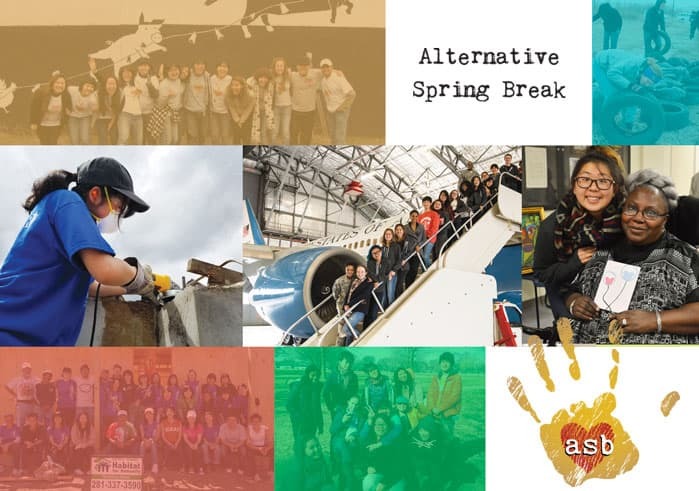From Intersectionality to Community Cultural Wealth: 2021’s Virtual Alternative Spring Break

In the aftermath of Hurricane Katrina in 2005, a group of Soka students decided they wanted to help. During their spring break they flew to New Orleans to join the disaster relief efforts. Their trip sparked a new SUA tradition: an Alternative Spring Break during which students spend their recess doing community service.
Over the years, Alternative Spring Break has developed into a co-curricular service-learning program that combines dialogue-based learning with volunteer service. Participants explore social justice concepts such as privilege, oppression, intersectionality, and equality while engaging directly with the communities that are most impacted by them.
Because of the pandemic, 2021’s ASB was more informal than previous years. This year’s program—led by Ruby Nagashima, assistant director of student leadership and service engagement—did not require an application to participate. The program typically runs from September through April but this year, Student Affairs hosted a six-week program in February and March. Each student was encouraged to find a volunteer opportunity to engage in virtually while attending weekly sessions focused on social justice topics.
Each weekly session focused on a new topic, acting as a space for students to engage in dialogue and learn from one another’s experiences. Topics included:
- ASB Social Justice Education Approach
- Intersectionality and Positionality
- Cycle of Socialization
- Understanding Systems of Oppression
- Exploring Power, Privilege, and Community Cultural Wealth
- Envisioning Strategies for Change as Global Citizens
In addition to discussions, students participated in activities such as a virtual privilege walk, where participants played an online racing game with different starting points to represent how some people have an unfair advantage that helps them achieve their goals more quickly.
“ASB helped me reevaluate my experience as a US citizen when compared to others, which gave me a newfound sense of pride in my identity,” said Will de Melo ’23. “In the future I want to be more perceptive of microaggressions that I or others might be unwittingly saying.”
With opportunities to put social justice education into practice, Alternative Spring Break has become a program that promotes lifelong, active global citizenship where participants are empowered to contribute toward building a more just and equitable society.
—Nagisa Smalheiser ’21
